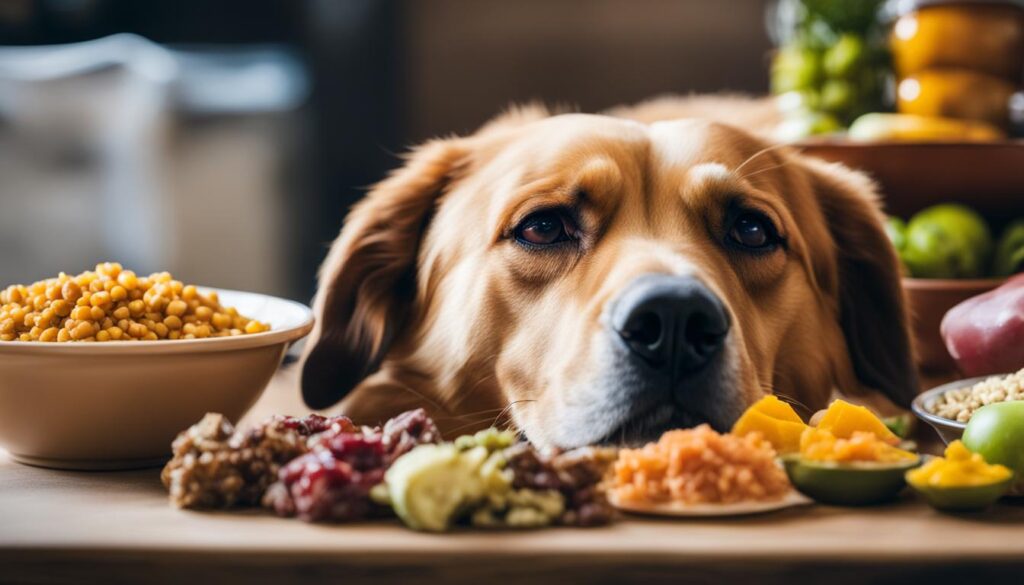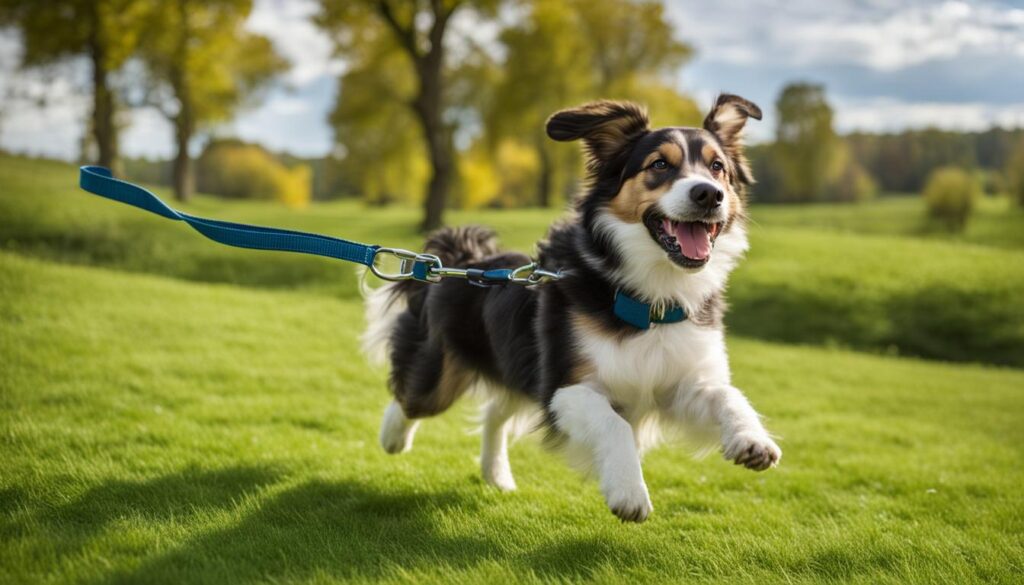What to Feed a Dog with Liver Problems?
The liver is a vital organ in a dog’s body, responsible for various functions like metabolism and digestion. When a dog faces liver problems, it is crucial to provide the right nutrition to support their liver function and overall well-being.
Proper nutrition plays a significant role in managing liver disease in dogs. A liver disease diet for dogs aims to improve liver function and provide the necessary nutrients for their health. Real food meals are often recommended as they are easily digestible and packed with high-quality ingredients.
If your dog is experiencing liver problems, it’s important to be aware of the symptoms such as loss of appetite, weight loss, lethargy, jaundice, or seizures. Basic blood tests can help identify liver abnormalities.
When it comes to feeding a dog with liver problems, there are dietary guidelines to follow. Some of the foods that can be included in a liver disease diet are ground beef, ground chicken, ground turkey, eggs, brown rice, millet, potatoes, Chinese eggplant, carrots, broccoli, and kale.
One recommended liver disease diet is Chi Dog’s Wood Diet. This diet is designed to support harmonious Qi flow and liver function, providing the necessary nutrients to improve your dog’s liver health.
Remember, it’s crucial to consult with your veterinarian to develop a comprehensive treatment plan for your dog’s liver problems.
Key Takeaways:
- Proper nutrition plays a crucial role in managing liver disease in dogs.
- Real food meals are recommended for dogs with liver problems, as they are easily digestible and packed with high-quality ingredients.
- Recognizing symptoms and conducting blood tests are important steps in diagnosing liver problems in dogs.
- A liver disease diet can include foods like ground beef, ground chicken, eggs, brown rice, and various vegetables.
- Chi Dog’s Wood Diet is a recommended liver disease diet that supports liver function and overall well-being.
The Importance of a Hepatic Diet for Dogs with Liver Disease
A hepatic diet is crucial for dogs diagnosed with liver disease. This specialized diet plays a vital role in supporting the liver’s function and minimizing stress on the organ, helping improve the overall well-being of dogs with liver disease.
When selecting dog food for liver disease, it’s important to consider specific nutritional requirements. The ideal diet should be low in protein to reduce the liver’s workload in processing protein. Opt for easily digestible protein sources such as cod, peas, or eggs that provide essential amino acids without overwhelming the liver.
In addition to low protein content, hepatic dog food should be easily digestible to minimize strain on the liver. Look for options that contain gentle ingredients and are formulated with digestive enzymes or probiotics to support optimal digestion and nutrient absorption.
Another crucial consideration in a hepatic diet is the copper content. Excessive accumulation of copper can lead to liver damage. Therefore, it’s important to choose dog food with low copper levels to help prevent further complications. On the other hand, high levels of zinc in the diet can counteract copper build-up and promote liver health.
Ensuring that the hepatic dog food is appealing to dogs with a decreased appetite is equally important. Look for options with delicious flavors that can entice dogs to eat and maintain proper nutrition.

By selecting a high-quality hepatic dog food recommended by veterinarians, pet owners can rest assured that the diet meets the necessary criteria to support liver function. Consulting with a veterinarian or veterinary nutritionist can provide further guidance and help create a tailored dietary plan for dogs with liver disease.
| Nutritional Requirements | Important Considerations for a Hepatic Diet |
|---|---|
| Low Protein | To reduce the liver’s workload and minimize stress |
| Easily Digestible | To prevent further strain on the liver |
| Low Copper | To avoid excessive copper accumulation and liver damage |
| High Zinc | To counteract copper build-up and promote liver health |
| Delicious Flavors | To entice dogs with decreased appetite |
Optimal Diet for Dogs with Liver Disease: Fresh Food Approach
A fresh food diet is highly beneficial for dogs with liver disease as it provides high-quality, bioavailable nutrients while minimizing the workload on the liver. When formulating a fresh food diet for dogs with liver disease, several key considerations should be taken into account:
- Low-Fat Dog Food for Liver Disease: It is essential to choose a low-fat dog food to reduce the liver’s processing of fats. Aim for a diet that contains around 10-15% fat on a dry matter basis.
- Low Phosphorus Dog Food for Liver Shunts: For dogs with liver shunts, it may be necessary to restrict phosphorus levels in their diet. High phosphorus levels can strain the liver and exacerbate the condition.
- Copper-Restriction in Dog Food for Copper Toxicity: If your dog is experiencing copper toxicity, it is crucial to select a dog food that restricts copper content. Excessive copper accumulation can lead to liver damage.
- Moderate to High Bioavailable Protein for Liver Disease: Dogs with liver disease require moderate to high levels of bioavailable protein to support hepatic regeneration and prevent negative nitrogen balance. Ingredients such as lean meats, eggs, and certain legumes are excellent sources of protein.
- Omega Fats and Antioxidants for Liver Health: Omega-3 fatty acids and antioxidants are beneficial for liver health. Consider incorporating ingredients rich in omega fats, such as fish oil, and antioxidant-rich foods like blueberries.
- Vitamin Deficiency Testing for Liver Disease: To address any potential nutrient deficiencies, it is recommended to consult with a veterinarian and conduct vitamin deficiency testing. This helps ensure that your dog’s diet provides all the necessary vitamins and minerals for optimal liver function.
- Regulated Treats for Liver Disease: Even dogs with liver disease deserve the occasional treat. However, it’s crucial to choose regulated treats that align with their dietary needs. Look for low-fat, liver-friendly treats or consider making homemade treats using approved ingredients.
- Avoiding Leftovers for Liver Disease: Leftovers and table scraps can contain high levels of fat, sodium, and other ingredients that may strain the liver. It’s best to avoid feeding leftovers to dogs with liver disease to ensure their diet remains tailored to their specific needs.
A fresh food diet, whether home-cooked or raw, can effectively support liver function in dogs with liver disease. Remember to consult with a veterinarian to create a customized diet plan that addresses your dog’s specific condition and nutritional requirements.
The Role of Exercise and Medical Management in Liver Health
Regular exercise plays a vital role in maintaining liver health in dogs. This is especially important for dogs with an imbalance in the liver element. Engaging in daily walks for approximately 30 minutes can provide numerous benefits, including supporting healthy liver function and emotional regulation.
Veterinary check-ups are crucial for dogs with liver disease. Routine monitoring allows for the assessment of liver disease progression and adjustment of treatment plans accordingly. Regular check-ups ensure that any changes or complications can be promptly addressed, optimizing the dog’s liver health and overall well-being.
Appropriate medications may be prescribed by veterinarians to manage liver disease symptoms and improve liver function. These medications can help alleviate discomfort and support the liver’s ability to perform its vital functions.
Stress management plays a significant role in liver function. Stress can exacerbate liver disease and hinder the liver’s ability to heal. Stress-reduction techniques, such as creating a calm and soothing environment, can significantly contribute to the overall well-being of dogs with liver disease.
Endocrine diseases, such as diabetes mellitus, hyperadrenocorticism, and hyperthyroidism, can impact liver function. Proper treatment and management of these conditions are necessary to minimize their effects on the liver and support its optimal functioning.
Infections can also affect liver health and should be promptly addressed. Regular veterinary check-ups and vaccinations can help prevent infections and protect the liver from potential damage.

Conclusion
Proper nutrition is crucial for supporting the liver function and overall well-being of dogs with liver disease. A hepatic diet that includes low protein, easily digestible ingredients, and balanced nutrient levels can significantly improve liver health, allowing dogs to live longer and healthier lives. Tailoring fresh food diets to meet the specific needs of individual dogs helps provide necessary nutrients while reducing the workload on the liver.
In addition to a hepatic diet, regular exercise, stress management, and appropriate medical management play vital roles in maintaining liver health. Regular physical activity helps support liver function and emotional regulation in dogs. Managing stress levels is essential as stress can exacerbate liver disease. Proper medical management, including medications and addressing any underlying conditions, can improve liver function and overall health.
By taking proactive measures and providing optimal care, pet owners can significantly enhance the quality of life for dogs with liver disease. Consulting with a veterinarian is crucial for developing a comprehensive treatment plan tailored to each dog’s specific needs. Together, with the right diet, exercise, and medical management, pet owners can support their dogs with liver disease and ensure they live happy and healthy lives.
FAQ
What should I feed my dog with liver problems?
Dogs with liver problems should be fed a liver disease diet that consists of easily digestible, high-quality ingredients. Some recommended foods include ground beef, ground chicken, ground turkey, eggs, brown rice, millet, potatoes, Chinese eggplant, carrots, broccoli, and kale.
Why is a hepatic diet important for dogs with liver disease?
A hepatic diet is essential for dogs with liver disease as it supports the liver’s function and minimizes stress on the organ. It should be low in protein, easily digestible, low in copper, and high in zinc. The diet should also be tasty to entice dogs with decreased appetite.
What is the optimal diet for dogs with liver disease?
A fresh food diet is highly beneficial for dogs with liver disease as it provides high-quality, bioavailable nutrients while minimizing the workload on the liver. The diet should be low in fat, have restricted phosphorus and copper content if necessary, and include moderate to high bioavailable protein. Omega fats, antioxidants, and vitamin deficiency testing are also important considerations.
How does exercise and medical management affect liver health in dogs?
Regular exercise, such as daily walks, is vital for maintaining liver health in dogs, especially those with an imbalance in the liver element. Routine vet check-ups are crucial to monitor liver disease progression and adjust treatment accordingly. Appropriate medications may be prescribed to manage symptoms and improve liver function. Stress management, treatment of endocrine diseases, and prompt management of infections are also important factors in maintaining liver health.
What is the conclusion regarding proper nutrition for dogs with liver disease?
Proper nutrition is essential for dogs with liver disease to support liver function and overall well-being. A hepatic diet consisting of low protein, easily digestible ingredients, and balanced nutrient levels can improve liver health. Fresh food diets tailored to the dog’s specific needs can provide the necessary nutrients while minimizing the liver’s workload. Regular exercise, stress management, and appropriate medical management are also crucial in maintaining liver health. By taking proactive measures and providing optimal care, pet owners can support their dogs with liver disease and enhance their quality of life. Consultation with a veterinarian is essential in developing a comprehensive treatment plan for dogs with liver problems.


